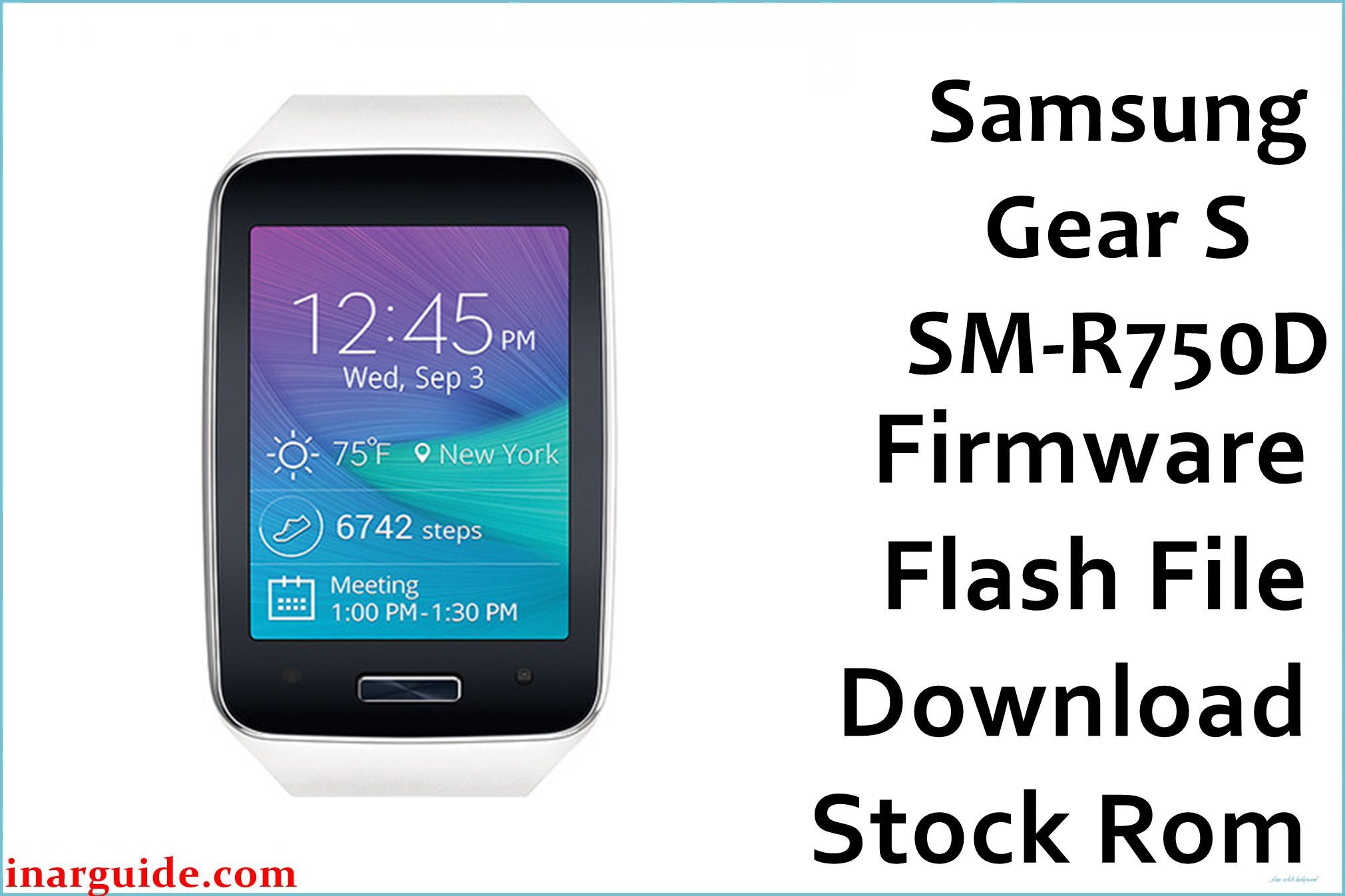Looking to install the stock ROM on your Samsung Gear S SM-R750D? This comprehensive guide provides direct download links for the firmware flash file and clear, step-by-step instructions to get your phone back on track.
Use this firmware file to effectively reset your phone, fix bootloop issues, bypass password locks, resolve device freezing, and address numerous other software problems.
Samsung Gear S SM-R750D Quick Specs
- Display: 2.0-inch Curved Super AMOLED display
- Resolution: 360 x 480 pixels
- Processor: Dual-core 1.0 GHz
- RAM: 512MB
- Storage: 4GB (not expandable)
- Operating System: Tizen-based wearable platform
- Battery: 300 mAh (non-removable)
- Connectivity: Wi-Fi, Bluetooth 4.1, 3G
- Sensors: Accelerometer, Gyroscope, Compass, Heart Rate, Ambient Light, UV, Barometer
- Special Features: IP67 dust and water resistant, standalone phone calls and SMS messaging via 3G connectivity.
Downloads:
| CSC | Version | Android Version | Download Links |
|---|---|---|---|
| XJP | R750DOMU1BNK1 | N/A | Download Softbank Mobile (Google Drive) |
| DCM | R750DOMU1BPA3 | N/A | Download NTT Docomo (Japan) (SamFW) |
How to Flash Samsung Gear S SM-R750D with Odin
- Prepare Your PC: Begin by installing the official Samsung USB drivers on your computer to ensure proper device recognition.
- Enter Download Mode: Power off your device. Enter Download Mode by holding the Volume Down, Home, and Power buttons simultaneously while connecting the Gear S SM-R750D to your PC.
- Launch Odin: Download and unzip the Odin flashing utility on your PC. Run the executable file to start the program.
- Connect the Device: Once your phone is in Download Mode and connected via USB, Odin should display an “Added” message.
- Load the Gear S SM-R750D Firmware Files: In Odin, load each firmware component (BL, AP, CP, and CSC) into its corresponding field.
- Start Flashing: Click the “Start” button to initiate the firmware installation. Wait for a confirmation message like “PASS” indicating success.
- Finish Up: Disconnect your phone and let it reboot. It should now be running the newly installed firmware.




![Motorola Moto E20 XT2155-3 Firmware Flash File Download [Stock ROM] Motorola Moto E20 XT2155-3](https://www.inarguide.com/wp-content/uploads/2022/01/Motorola-Moto-E20-XT2155-3.jpg)
![Motorola Moto G Pure XT2163DL Firmware Flash File Download [Stock ROM] Motorola Moto G Pure XT2163DL](https://www.inarguide.com/wp-content/uploads/2022/01/Motorola-Moto-G-Pure-XT2163DL.jpg)
![Motorola Moto G20 XT2128-1 Firmware Flash File Download [Stock ROM] Motorola Moto G20 XT2128-1](https://www.inarguide.com/wp-content/uploads/2022/01/Motorola-Moto-G20-XT2128-1.jpg)